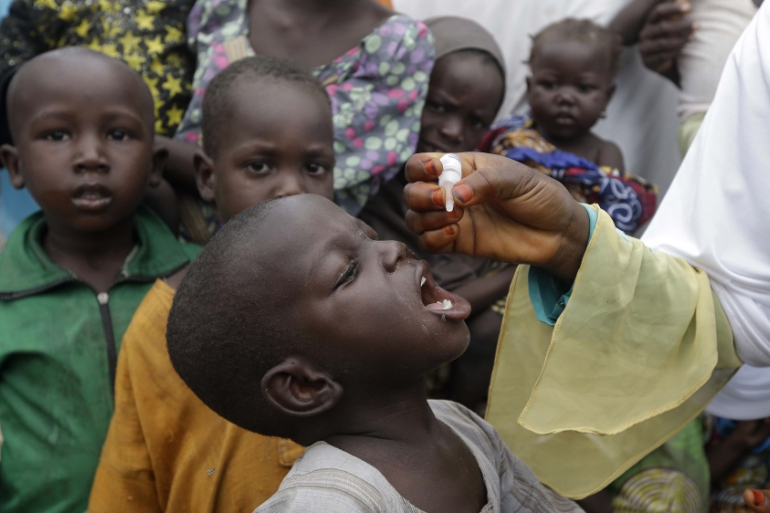Polio in Nigeria tells a story of resilience, determination and the power of public health initiatives. For decades, Nigeria was at the epicentre of the global polio crisis, especially in Africa. As recently as 2012, the country accounted for more than half of all polio cases worldwide, and eradicating the disease seemed like an uphill battle, complicated by conflict, mistrust, and logistical challenges.
However, through collective effort and unwavering commitment, Nigeria achieved what many once thought was impossible: in August 2020, the country was declared free of the wild polio virus.
Yet, as we celebrate this milestone, we must recognise that the fight is not entirely over. Nigeria’s experience with polio offers critical lessons for the future—both in keeping the country polio-free and in ensuring that no Nigerian child ever again suffers from this preventable disease.
Nigeria’s path to eliminating wild polio was fraught with challenges. In the northern region, where healthcare infrastructure was the weakest, polio persisted for decades. Conflicts in areas like Borno State, where Boko Haram and other militant groups disrupted immunization efforts, allowed the virus to endure.
- Nigeria @64: Ethics, morals, key to positive economic growth -Shettima
- MURIC to Nigerians: Beam searchlights on governors
Additionally, there were longstanding fears and misinformation surrounding vaccines, which led to boycotts of polio immunization campaigns. At its peak in 2003, some religious leaders in the North claimed that the polio vaccine was a Western conspiracy to sterilize Muslim children, resulting in a significant setback for eradication efforts.
However, thanks to the tireless work of health workers, community leaders, learned Islamic leaders and global partners like WHO, UNICEF and Rotary International, the tide began to turn. Grassroots efforts were key. Health workers went door-to-door, often at great personal risk, to ensure every child was vaccinated. Religious and traditional leaders were engaged to dispel vaccine myths and to advocate for immunization. These efforts paid off: after many setbacks and false hopes, Nigeria achieved a polio-free status in 2020, joining the rest of Africa in celebrating a continent free of the wild polio virus.
While Nigeria has been free of wild polio since 2016, the battle against polio is not fully over. In some parts of the country, cases of vaccine-derived polio virus (VDPV) continue to emerge. VDPV can occur when the weakened virus used in the oral polio vaccine (OPV) circulates in communities with low immunization rates and mutates. This form of the virus, though different from wild polio virus, can still cause paralysis.
Nigeria’s health system is under constant strain from a variety of challenges, and maintaining high vaccination rates has become even more crucial to prevent a resurgence. As the COVID-19 pandemic disrupted routine immunization programmes, there are fears that immunization gaps may widen, putting Nigeria’s hard-earned victory at risk.
Nigeria’s polio success is fragile, and maintaining it will require continued vigilance, investment, and education. This means ensuring that all Nigerian children receive both doses of the inactivated polio vaccine (IPV) and oral polio vaccine (OPV) until the world is rid of polio entirely.
It also means addressing the underlying challenges that made polio so difficult to eradicate in the first place: poor access to healthcare, conflict, insecurity and misinformation, the Nigerian government has already shown immense dedication to immunization, but more work is needed. Nigeria’s borders are porous, and as long as polio remains active in other parts of the world, the country is still at risk. Continued cooperation with neighbouring countries, influential religious leaders and global health bodies will be crucial in ensuring that no polio cases are re-imported.
Public trust in vaccines must remain high. The success of polio eradication efforts in Nigeria is a testament to what can be achieved when communities are involved and when local leaders take ownership of public health campaigns. Strengthening these relationships will be critical in protecting future generations.
Nigeria’s battle with polio is both a symbol of hope and a cautionary tale. It shows us that even in the face of great adversity—whether it’s conflict, misinformation, or logistical challenges—change is possible. The country’s triumph over wild polio serves as a source of pride, not only for Nigerians but for the entire global health community.
However, it’s also a reminder that complacency can be dangerous. The gains Nigeria has made can be easily reversed if immunization efforts falter or if the focus shifts away from keeping the population safe. Polio has not disappeared entirely, and we must remain vigilant until the virus is eradicated everywhere.
Nigeria’s success is proof that, with the right support, political will, and community engagement, even the most difficult health challenges can be overcome. But as the fight continues, it’s up to all of us to ensure that Nigeria—and the world—remains free of polio for good.
Ummul Khulthum wrote from Abuja via [email protected]

 Join Daily Trust WhatsApp Community For Quick Access To News and Happenings Around You.
Join Daily Trust WhatsApp Community For Quick Access To News and Happenings Around You.